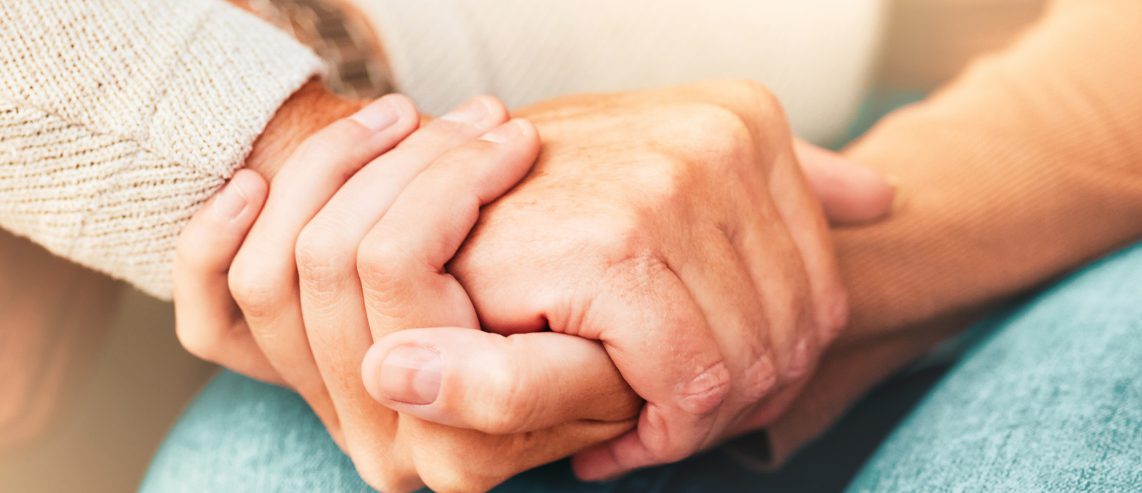Caring for others starts with caring for yourself.
At least 53 million Americans — more than one in five — give unpaid daily care to a loved one with physical, psychological, or medical needs. Most caregivers have little to no formal training and learn as they go to give the best at-home care they can.
When an aging parent needs help, their adult children are often the first to offer support. This support can improve an older person’s quality of life and keep them safe and healthy for longer.
Caring for a family member is often rewarding but difficult. Unpaid caregivers are a source of emotional support for their loved ones. They also help with daily tasks that their family or friends cannot or should not do on their own.
As a caregiver, it’s important to remember that self-care is part of the job. Letting your own health and well-being go can lead to burnout, which is bad for you and the person in your care.
What Is a Caregiver?
Caregivers provide routine care or assistance to someone who has an illness, disability, or other ongoing need. This person is often a family member, but sometimes, it is a neighbor or friend.
Caregivers are usually the best source of a loved one’s medical information. They keep track of care like medication, therapy, and injections, and advocate for them in health care settings.
Caregivers may also help the person in need with appointments, housework, shopping, bathing, dressing, and even eating.
Common challenges caregivers face include:
- Feeling invisible within the health care world.
- A lack of privacy.
- Resistance to support.
- Sleep deprivation.
- Strains on mental and physical health.
- Time constraints and financial hardships.
Never Miss a Beat!
Download our guide to self-care for caregivers.
Thank you for subscribing!
You can now select the specific newsletters you'd like to receive.
You are already subscribed.
Subscribe to more newsletters in our email preference center.
Sorry, an error occurred. Please try again later.
Get Healthy Tips Sent to Your Phone!
Caregiver Burnout: How to Spot the Signs
The stresses of caregiving are common. Without self-care, those caring for a loved one are likely to burn out, harming their physical and mental health.
Overlooking the signs of burnout when you’re pulled in all directions is easy.
Early and outward signs of caregiver burnout include:
- Anger and irritability.
- Anxiety.
- Changes in sleep patterns.
- Depression.
- Fatigue.
- Illness and physical issues.
- Substance abuse.
- Trouble concentrating.
- Unexpected weight loss or gain.
Practical Self-Care Ideas for Caregivers
Self-care looks different for everyone and can offer major overall wellness benefits.
Self-care is the “ability of individuals, families, and communities to promote health, prevent disease, maintain health, and cope with illness and disability with or without the support of a health worker.” That’s according to the World Health Organization.
Simply put, self-care means taking the time to do things that help you live well and stay healthy.
When it comes to mental health, self-care can help with stress, fight illness, boost energy, and make life more enjoyable.
You can’t remain attentive to the needs of others — especially those you’re caring for — if you don’t meet your own. Self-care can better equip caregivers to give quality, loving care and solve problems that arise.
Having a self-care routine can improve your mental and physical health, your sleeping habits, your productivity, and your relationships.
Tips for Coping with Guilt and Grief as a Caregiver
Caregivers navigate day-to-day tasks like appointments, household chores, and taking care of medical needs. They also deal with feelings like guilt and grief.
Witnessing a loved one’s decline is difficult, and caring for that person only adds to that distress.
Caregivers may experience grief as their loved one’s personality shifts or as they prepare to say goodbye in the near future.
Caregivers experience a variety of losses, including losses of independence, financial security, and lifestyle. These sacrifices are in addition to feelings that arise when changes in a loved one make them feel like a stranger. This sense of loss is common for those caring for someone with dementia or a brain injury.
Guilt is also common among caregivers. Ideas about how caregivers should feel or behave aren’t always realistic. Guilty feelings can lead to worse stress levels and health.
It’s important to remind yourself that you’re doing the best you can. Make time to care for yourself and your life outside of caregiving.
Taking The Next Steps
The good news is there are many ways to cope with grief and guilt as a caregiver, and you’re not alone.
Here are some tips for coping with your guilt and grief:
- Find a support system, such as caregiver support groups or caregiver therapy.
- Go easy on yourself and don’t be afraid to ask for help.
- Practice self-care.
- Stay aware of what you are feeling.
About UPMC
Headquartered in Pittsburgh, UPMC is a world-renowned health care provider and insurer. We operate 40 hospitals and 800 doctors’ offices and outpatient centers, with locations throughout Pennsylvania, Maryland, New York, West Virginia, and internationally. We employ 4,900 physicians, and we are leaders in clinical care, groundbreaking research, and treatment breakthroughs. U.S. News & World Report consistently ranks UPMC Presbyterian Shadyside as one of the nation’s best hospitals in many specialties and ranks UPMC Children’s Hospital of Pittsburgh on its Honor Roll of America’s Best Children’s Hospitals. We are dedicated to providing Life Changing Medicine to our communities.
